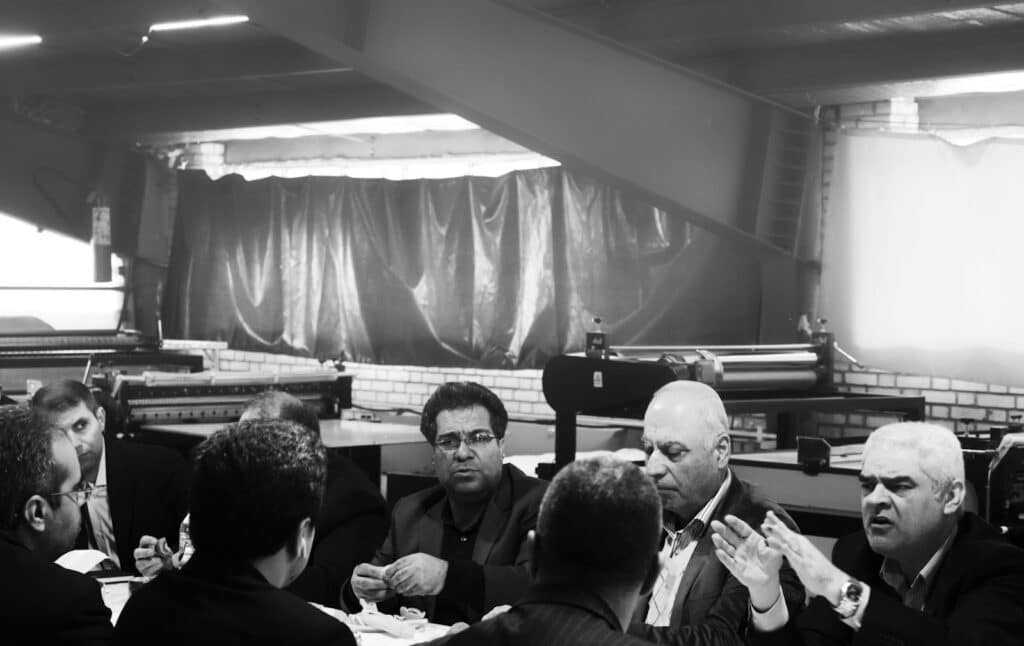Going public is a decisive step in a company's growth, but the road to the financial markets can seem complex. For many small and medium-sized enterprises (SMEs), the requirements of regulated markets are a major obstacle. Fortunately, there are alternatives: multilateral trading facilities (MTFs), designed to offer greater flexibility. Among these, Alternext and the Marché Libre stand out as privileged access routes to financing. Understanding their respective mechanisms and conditions is essential for any manager considering this strategic move. This process is part of a complete legal guide to initial public offeringsbut deserves special attention for its specific features.
Alternext: an organised multilateral trading facility
Launched in 2005, Alternext was specifically designed for SMEs seeking financing, by creating a bridge between private equity and the traditional regulated market. It is known as an "organised multilateral trading facility" (OMTS). This designation is not insignificant: it means that, although it is not a regulated market in the strict sense, its organisational rules are approved by the Autorité des marchés financiers (AMF). This supervision guarantees a higher level of protection for investors than on the Marché Libre, particularly with regard to the fight against market abuse, while maintaining lighter listing constraints than on Euronext.
Admission requirements (securities, financial statements, effective opening of capital)
To be admitted to Alternext, a company must satisfy a number of fundamental conditions that ensure a minimum of transparency and security for the market. Firstly, the securities presented for listing, whether shares or other securities giving access to the capital, must be freely negotiable and transferable. They must also be eligible for trading by a central depository, such as Euroclear France, so that transactions can be processed automatically.
Secondly, from a financial point of view, the applicant company must provide a history of its accounts. It must have filed its annual, company and consolidated financial statements, where applicable, for the two financial years preceding its application. Certification by an auditor is required for at least the last financial year. If the last financial year is more than nine months old, interim financial statements must be submitted. This requirement, while real, is less onerous than the three years of audited accounts required for admission to a regulated market.
Lastly, unlike the threshold of 25 % of the capital to be distributed to the public on Euronext, Alternext imposes a more flexible condition of "effective opening of the capital". This notion is not defined by a strict percentage, which leaves room for discretion and allows for admissions without a public offering, for example following a significant private placement. This flexibility is one of the most attractive features of the market for SMEs.
The admission application and the role of the listing sponsor
The Alternext listing procedure is distinguished by the central and compulsory role of the listing sponsor. The listing sponsor, which must be approved by Euronext Paris, is an essential partner for the applicant company. The listing sponsor has a dual role: it advises and supports the company throughout the process, but it is also responsible to the market operator. The listing sponsor is a permanent coordinator between the issuer and Euronext.
The application for admission must be submitted jointly by the company and its listing sponsor at least twenty trading days before the planned admission date. The sponsor must provide Euronext with a certificate confirming that it has carried out the necessary due diligence. In particular, the sponsor must have satisfied itself that the company meets the listing requirements, that the investor information document is complete and contains no material omissions, and that the company has put in place the resources needed to meet its future disclosure obligations. This "sponsorship" by an accredited professional is a guarantee of seriousness for the market and investors, partly offsetting the reduction in regulatory constraints.
Admission procedures: public offer, private placement, direct admission
There are three main ways for a company applying to Alternext to open up its capital:
A public offering is the most traditional procedure. It involves raising funds directly from investors, both individual and institutional. This operation must result in the subscription of at least €2.5 million. Since this is a public offering, a prospectus approved by the AMF is essential. This document provides full, verified information about the company, its activities, its financial position and the associated risks.
Prior private placement is a faster alternative. The company can be admitted if, in the two years preceding its application, it has carried out a capital increase of at least €2.5 million with qualified investors (financial professionals). In this case, a prospectus approved by the AMF is not required. It is replaced by an information document, often called an "offering circular", drawn up under the responsibility of the company and its listing sponsor. Once the securities are admitted, they can be traded by any type of investor, but their initial marketing is reserved for an informed public.
Direct admission is a fast-track procedure for companies whose securities are already traded on another market, whether regulated (such as Euronext) or another recognised multilateral system (such as the Marché Libre or London's AIM). To be eligible, the issuer must demonstrate that its securities have been distributed to the public on its home market for a value of at least €2.5 million. In this case, the disclosure requirements are simplified, and the document required may be limited to the publication of the latest financial reports and a summary of past communications.
Transfer from a regulated market to Alternext
The law provides a specific framework for companies listed on a regulated market to transfer their shares to Alternext. This option is open to companies with a market capitalisation of less than one billion euros. The decision must be approved by the general meeting of shareholders. The actual transfer can only take place after a period of two months following this meeting, during which time the public is informed of the terms and consequences of the operation. To protect investors during this transition to a less regulated market, the law imposes a three-year survival period for the rules applicable on regulated markets in terms of takeover bids and major holding notifications. This mechanism ensures a smooth transition and safeguards the rights of minority shareholders.
The Marché Libre: simplicity and flexibility for young companies
The Marché Libre, formerly known as the Marché hors-cote, is a multilateral trading facility managed by Euronext Paris, but which, unlike Alternext, is not classified as "organised". It represents the first level of access to the financial markets for young companies and start-ups that are not yet able to meet Alternext's criteria. Its main characteristic is that it is extremely simple to access, both in terms of the conditions of access and the post-registration obligations. It is a market where transactions are organised, but with a minimalist regulatory framework.
Minimum registration requirements
The flexibility of the Marché Libre is reflected in the fact that there are virtually no preconditions. There is no requirement for financial statements to be old, so a newly created company can be listed. Similarly, there is no requirement for shares to be distributed to the public or for the capital to be opened up to the public. The free float may be very low or even non-existent at the time of listing. This accessibility makes it a relevant financing tool for projects in the seed or early development phase.
The application form: authors and content
One of the special features of the Marché Libre is that an application for listing may be made not only by the issuing company itself, but also by a shareholder holding a proportion of the capital. In the latter case, the shareholder must inform the company of his intention, which cannot oppose it. Whatever the initiative, the application must be submitted by a member of the Euronext Paris markets. The documents to be submitted are relatively simple: they include the company's articles of association, a K bis extract, the financial statements for the last two financial years if the company is not new, and a brief note justifying the proposed price. The presenting member must also certify that the shares are freely tradable and that the company is not in receivership.
Listing procedures: direct listing and centralised offers
The vast majority of shares are listed on the Marché Libre using the direct listing procedure. This is not an offer of shares in the strict sense of the term, but simply the listing of existing shares for trading, thereby providing shareholders with a market in which to exchange them. Buy and sell orders are centralised by Euronext Paris, which establishes an initial price. For larger transactions, although this is rare, it is possible to use centralised offers (firm, minimum or open price offer). If such a transaction constitutes a public offering, a prospectus must be approved by the AMF, temporarily bringing the formalities closer to those for other markets.
Comparison and choice between regulated and non-regulated markets
The choice of market for an IPO is a strategic decision that must be aligned with the company's maturity, financing needs and ability to meet regulatory obligations. While the requirements of procedures for admission to regulated markets (three years' track record of audited accounts, free float of at least 25 % of the capital) can be an obstacle, unregulated markets offer a gradual route. The Marché Libre is the most accessible entry point, ideal for a first listing experience with minimal constraints, but offering potentially limited liquidity and visibility. Alternext is a robust intermediate solution, offering greater credibility thanks to the supervision of the AMF and the role of the listing sponsor, while retaining considerable flexibility for growing SMEs. The regulated market, on the other hand, remains the benchmark for larger companies seeking greater liquidity and access to a wide range of international investors, at the cost of greater formalism and higher costs.
Solent Avocats: optimising your access to unregulated markets
The success of an IPO, even on a non-regulated market, depends on rigorous preparation and a thorough understanding of the legal framework. The support of a competent law firm is crucial in structuring the operation, preparing the required documentation (prospectus or information document), and coordinating relations with the various parties involved, such as the listing sponsor or the Autorité des marchés financiers. Our firm can provide you with our expertise in banking and financial law to assess the relevance of each contract to your project, provide legal certainty for the admission process and advise you on post-listing obligations.
Choosing a market and preparing for an IPO are complex decisions with far-reaching consequences. For an in-depth analysis of your project and tailored support, contact our firm.
Sources
- Monetary and Financial Code
- Commercial code
- General regulations of the Autorité des marchés financiers (AMF)




